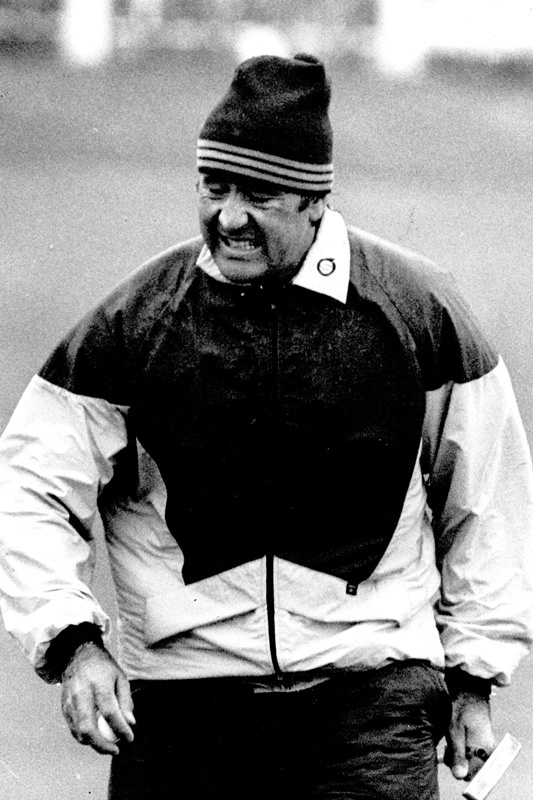Journalists aren’t supposed to have favourites or heroes “no cheering in the press box” is the hard and fast rule, and you get frowned on for even raising your voice.
There are exceptions, however, and Severiano Ballesteros, who died at the weekend after a long struggle with a brain tumour, was one.
I would hazard a guess that, in the 1980s, roughly three-quarters of the press tent wanted Seve to win. We wanted to him to win because he was all we really wanted to be, with his magical touch, his never-say-die attitude, his brooding good looks and even when he could hardly play competitively any more, we all still felt like this, no different than any of the legion of his fans behind the ropes.
At the Open Championship at Royal Troon in 2003, I was among a group attending one of the functions held during Open week by the golf equipment manufacturers. The form of these is the same wherever the Open is held a hitting exhibition by the company’s top pros, a barbecue and bar, a speech from the company’s UK chief and a goodie bag. Except in 2003 there was no exhibition, but rather there was Seve, who was not playing in that year’s championship and who was already en route to the retirement he forced on himself at Carnoustie in 2007.
Those present thought to get a line out of him in preview for the championship, and he happily provided one.
However, in the huddle around Seve that evening you couldn’t help but notice the 20 journalists, gathered close but slightly cowed, bearing silly smiles, their body language showing the unmistakable form of adoring hero worship, and he had to sign a succession of things before we let him get away.
The first thing that struck you about meeting Seve was that he looked so much smaller than on TV, but like many forceful characters he always seemed bigger. He was invariably charming and often funny, once answering a question as to how he could possibly four-putt a green with the line, “I miss, I miss, I miss, I make.”
In contrast, the chip on his shoulder from his days as a penniless caddie at Pedrena on Spain’s northern coast could be tweaked by the most innocent of comments, and he had a readymade enemy in the world of American golf, where they mispronounced his name, called him “the car park champion” and generally patronised him.
It’s said now that Seve basically created the European Tour, and that every player who has made a single sou on the circuit should be offering up their thanks to him and this is probably true.
It’s also true that he, with Jack Nicklaus and Tony Jacklin, transformed the Ryder Cup, and his inspiring presence in that event led to Europe dominating against a succession of supposedly superior US teams not least under Seve’s own captaincy at Valderrama in 1997.
His true worth, in my opinion, was that he properly Europeanised golf. Before Seve, the European Tour was strictly British, rather staid, over-respectful, lacking animation and tipping the cap to the players from across the Atlantic. Seve would have no truck with this nonsense.
He brought Latin fire and passion to the game and, straight from his first appearance on the scene at the 1976 Open at Royal Birkdale, he was in the Americans’ faces. Faldo, Lyle, Woosnam and Langer followed in his wake.
The Open fell to him in 1979, he went to America and won on his own terms, becoming the first European to win the Masters. Then he did it again.
In 1984 he made himself an icon forever with his victory celebration on the 18th green at the Old Course, and his performance in shooting 65 to win at Lytham in 1988 was truly awesome.
He was just 31 when he won that year, but that was his last major.
Seve may have been the first victim of golf’s obsession with standardising technique and the new equipment, taking his greatest asset his natural touch out of the game.
Still, to his fans, there was always hope of a comeback. Seve seemed indomitable, almost indestructible.
Even when he was diagnosed with a brain tumour two years ago, even though everyone knew it was bad, we all felt that, just as he escaped from the waist-high rough next to a wall and under a tree, surely he would wriggle free.
The fact we all hoped that shows just how magical he was.
